Diplomats and climate experts are to meet in Paris for the UN Conference on Climate Change, aiming to secure a new global deal that would limit emissions of carbon dioxide.
This blog was created because I'm very much concerned about our Planet and the many environmental issues which deserve being known by everybody. Some are real catastrophes while others are achievements of great importance for the survival of numerous endangered species or the health of the only planet we've got: E A R T H !
To my dear visitors and commenters
Hi, everybody!
I've noticed with lots of joy and happiness, that thousands of comments have been written in my posts. It's wonderful that so may people around the world appreciate my work. Therefore, I want to thank you for that and ,at the same time I want to ask you to be this blog's followers. It's fast and easy!
Make it be even more visited and spread all over the world! I'm a woman, a teacher of English in Portugal, and I've been away for quite a long time because of my father's health.
Unfortunately he died from Covid19 a few months ago. Now I felt it was time to restart my activity in this and other blogs I owe. I've recently created a new one in a partnership with a street photographer, Mr. Daniel Antunes. He's fabulous!
https://pandpbydandd.blogspot.com
I'd like you to visit it and, who knows, become our followers. The poems, chronicles and thoughts are all mine.
Thank you so much!
Kisses :-)
Search This Blog
Saturday, November 28, 2015
Friday, November 27, 2015
COP 21: Why does Paris climate change conference matter?

Etiquetas:
Climate changes
,
Conventions
,
COP21
,
Deforestation
,
Development and environment
,
Environmental organizations
,
Exhibitions Important measures to preserve nature
Wednesday, November 25, 2015
Primates need protecting scientists warn
Scientists have called for governments to do more to protect primates.
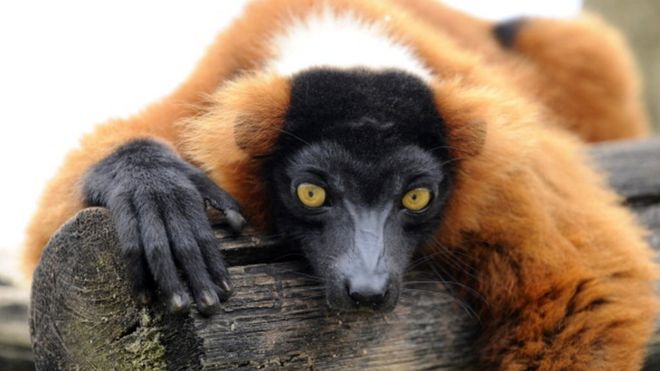
It's unknown how many Red ruffed lemurs are left in the wild.
It's after warning that more than half the world's primate population is facing extinction.
A new list of the world's 25 most endangered primates has been published.
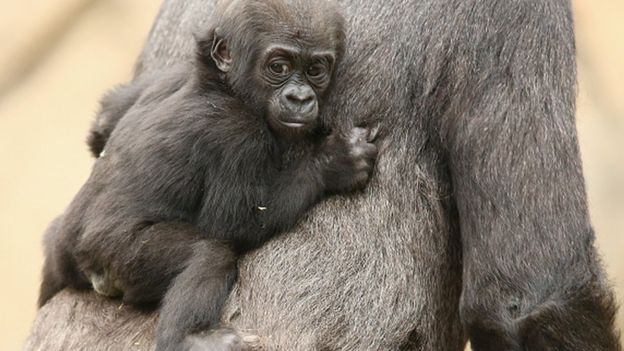
The population has been decreasing for a number of reasons.
Including the burning and clearing of tropical forests.
As well as being hunted for food or for use in traditional medicine in Asia .
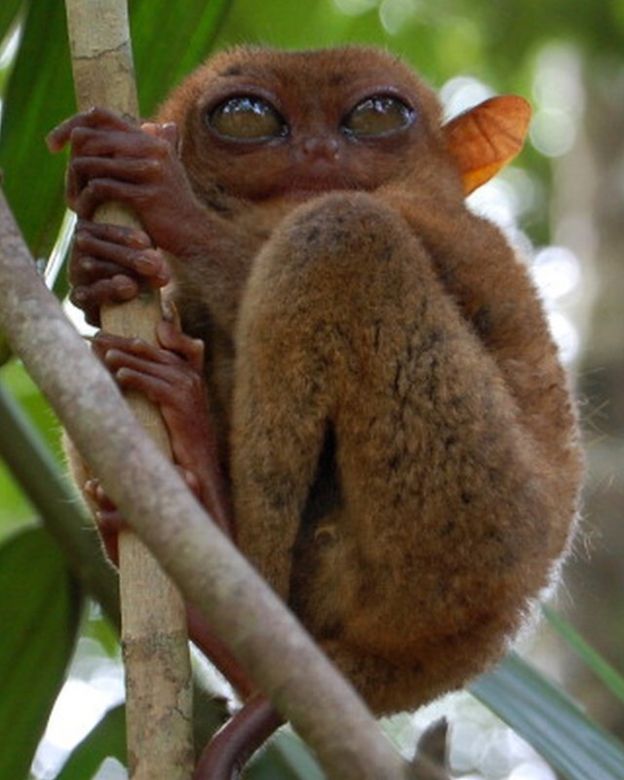
There are more 700 different types of primates in the world.
The Philippine tarsier and the Lavasoa Mountains dwarf lemur from Madagascar have been added to the list for the first time.
The hope is to convince governments across the world to look at ways of better protecting habitats and the animals.
From CBBC Newsround
Etiquetas:
Animals
,
Bad news
,
Development and environment
,
Endangered species
,
Extinction
,
Important measures to preserve nature
,
Informative articles
Monday, November 23, 2015
One of the world's last northern white rhinos dies in the US
An extremely rare northern white rhino has died in the US, leaving only three others in the world.
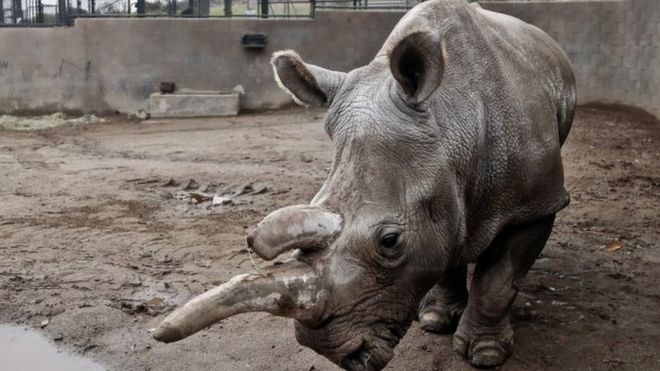
Nola was one of four northern white rhinos left in the world.
The 41-year-old rhino, Nola, died after surgery to her hip at San Diego Zoo.
Nola's death means that there are only three other northern white rhinos in the world.
They live in Kenya and are kept closely guarded.
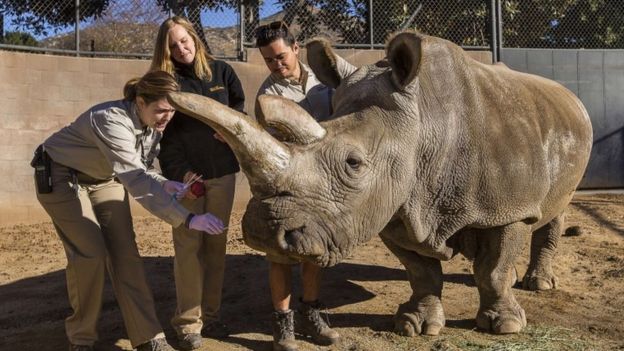
Nola had surgery on 13 November but her health got worse.
Poachers have been blamed for the devastating drop in northern white rhino numbers.
They kill many rhinos to get their horns, which are worth a lot of money in some cultures.
However, there is hope that there may be more northern white rhinos born in the future.
San Diego Zoo has recently brought in six southern white rhinos, hoping to use them as mothers to new northern white rhino calves.
Zoo researchers are still working out if it's possible, but they say they're hopeful that a northern white rhino calf could be born within 10 to 15 years.
From CBBC Newsround
Zoo researchers are still working out if it's possible, but they say they're hopeful that a northern white rhino calf could be born within 10 to 15 years.
From CBBC Newsround
Subscribe to:
Comments
(
Atom
)
Wikipedia
Search results